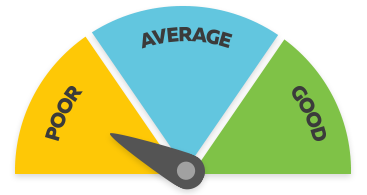Game Developer
Kaihanga Tākaro
Alternative titles for this job
Game developers write, design, program, animate and test games for computers, gaming consoles, tablets and mobile phones.
Pay
New game developers usually earn
$60K-$80K per year
Experienced game developers usually earn
$80K-$100K per year
Source: Randstad and Seek; 2023.
Job opportunities
Pay
Pay for game developers varies depending on experience and skills.
- Junior game developers with up to three years' experience usually earn between $60,000 and $80,000 a year.
- Experienced game developers can earn between $80,000 and $100,000 a year.
Source: Randstad website, 2023; and Seek, 2023.
- PAYE.net.nz website - use this calculator to convert pay and salary information
- Employment New Zealand website - information about minimum wage rates
(This information is a guide only. Find out more about the sources of our pay information)
What you will do
Game developers may do some or all of the following:
- create games, plots and characters
- produce storyboards, character biographies, storylines and features
- write detailed design documentation to explain how the game should look and function
- write computer code
- source and add additional graphics, sound effects and digital images
- animate characters and other content
- create test versions, and identify and correct any errors.
Most game developers specialise in a particular aspect of game design.
Skills and knowledge
Game developers need to have knowledge of some or all of the following:
- gaming and game platforms such as computers, gaming consoles, tablets and mobile phones
- game design
- game players' behaviour and psychology
- computer systems, processes and languages (such as C++, or C#, or Javascript)
- game engines such as Unity or Unreal
- video graphic design
- 2D and 3D art and animation software.
Working conditions
Game developers:
- work regular business hours
- work in offices or studios and usually need to meet deadlines.
What's the job really like?
Game designer video
Nick Thandi talks about life as a game designer – 2.14 mins.
As a game designer, I work with programmers, artists,
and other developers to create video games. A game designer focuses on defining
the rules of the game as well as making things fun for the players.
For instance, on a racing game,
a game designer would define the track layout as well as the speed and handling
of the cars. What I do in my day depends a lot on how far the game project has
progressed. Early on,
I do a lot of designs on paper as well as prototype features.
Then I collaborate with other departments to create content and eventually I
iterate and balance the game. There are lots of things I love about being a game
test,
designer. First of all, it's amazing to be able to work on video games.
I also find solving design problems interesting and there's a lot of variety in
the job as each project can be very different from the last. After I finished
high school, I went on to do an undergraduate degree majoring in game design.
After that, I did freelance work for a while before releasing my own game,
and after that worked on a few projects as a professional. The biggest challenge
I faced was getting my foot in the door.
There are a lot of people wanting to become game designers and not that many
positions To make myself employable, I developed and released a game.
The game engine is the most important piece of software in game development.
That's where everyone's work comes together and it's often the game designer's
job to make sure that it all works together.
I also use a lot of office programs as they make it easy to organise a large
amount of information. So I've had a few people say that the movement
speed's a little slow,
so I'm going to go ahead and make that change and just see how it plays.
These sorts of small changes and adjustments are
a big part of a designer's every day as you are always trying to get the perfect
gameplay. Always trying to get things just as good as they can be.
Let's see how that plays. Yeah, that's much better.
If I can give one piece of advice,
it would be to focus on your communication skills.
It's really important to speak clearly and concisely as well as persuasively.
It's also important to listen well,
read between the lines and take feedback well.
Entry requirements
To become a game developer it is essential to have experience of video and computer games.
Game programmers usually need a degree
To become a game programmer, you usually need a Bachelor's degree in computer science, software development or engineering.
Many university degrees have papers specialising in game programming or interaction design, and opportunities to make a game as a project.
Game artists and designers need a portfolio or showreel of their work
To become a game artist or designer you need a portfolio of your work or a showreel of games you have built (including online or board games). Some knowledge of programming is also an advantage.
Employers may prefer you to have a degree or diploma in:
- 2D or 3D animation
- media design
- game art and development.
Secondary education
A tertiary entrance qualification is needed to enter further training.
Technical subjects to become a game programmer
Useful subjects for game programmers are maths, physics and digital technologies.
Creative subjects to become a game artist
Useful subjects for game artists are art history, visual arts, and design and visual communication.
Personal requirements
Game developers need to be:
- creative and artistic
- methodical and accurate
- patient and adaptable
- able to work well under pressure
- good at analysis
- skilled in planning, organising and problem solving
- good at oral and written communication.
Useful experience
Useful experience for game developers includes:
- creating board or online games
- writing computer code to create games, software or websites
- art or design work
- experience recording or editing film
- playing computer and video games.
Physical requirements
Game developers spend a lot of time using computers and gaming consoles, so they need to know how to use computer equipment properly to avoid occupational overuse syndrome (OOS).
Find out more about training
- Engineering New Zealand
- (04) 473 9444 - hello@engineeringnz.org - www.engineeringnz.org
- IT Professionals
- 0800 252 255 - info@itp.nz - www.itp.nz
- New Zealand Game Developers Association (NZGDA)
- info@nzgda.com - https://nzgda.com
- NZ Tech
- 09 4750204 - info@nztech.org.nz - www.nztech.org.nz
What are the chances of getting a job?
Game developer job opportunities increasing rapidly
For those with experience, chances of getting a job as a game developer are good due to:
- the size of the games industry in New Zealand, which is worth $100 million a year in export revenue
- rapid growth in games development
- lack of skilled game developers in New Zealand – in 2017, 42% of games studios reported that skill shortages were limiting their growth
- forecasted international growth in demand for games including virtual reality (VR) and augmented reality (AR) games, which incorporate online and real-world environments
- the rapid growth of e-sports (playing competitive professional video games in teams online, and in person at large venues).
Strong demand puts game developers on skill shortage list
About 600 game developers worked in New Zealand in 2017, but this isn't enough to meet demand. Game programmers, artists and designers are the most in demand.
As a result, a number of game developer-related jobs appear on Immigration New Zealand's long-term skill shortage list. This means the government is actively encouraging skilled game developers in these categories from overseas to work in New Zealand.
Game developer-related jobs on the long-term skill shortage list include:
- multimedia specialist
- software engineer
- software tester
- developer programmer
- software and applications programmer NEC.
Specialist qualifications, a portfolio and networking improve job chances
Your chances of getting a game developer job as a new graduate are best if you have a specialist game development qualification, as competition is high.
The New Zealand Games Development Association (NZGDA) recommends you:
- investigate tertiary courses and how many of their graduates work in the industry
- build up a portfolio with paid or voluntary work
- check the NZGDA website for job vacancies
- network by attending the New Zealand Game Developers Conference, game developer meetups and Play by Play.
Types of employers varied
New Zealand has about 30 game development companies, with staff numbers ranging from fewer than five, to 100 or more.
About one third of game development employees are game programmers, 28% are game artists, and 10% are game designers.
Game developers may be employed on a fixed-term contract or permanently. Some game developers are self-employed.
Sources
- Immigration New Zealand, 'Long Term Skill Shortage List', 27 May 2019, (www.immigration.govt.nz).
- New Zealand Game Developers Association, 'Make Games in New Zealand - We're Growing and Hiring', accessed May 2018 (www.nzgda.com).
- New Zealand Game Developers Association, 'NZ Game Development hits $100 M - New Zealand Game Development Industry Survey', 2017, accessed May 2018, (https://nzgda.com).
- Statistia, 'Value of global video games market from 2011 to 2020 in billions of US dollars', accessed May 2018, (www.statistia.com).
- Vermeulen, M, Chairperson, New Zealand Games Development Association, www.careers.govt.nz interview, May 2018.
(This information is a guide only. Find out more about the sources of our job opportunities information)
Progression and specialisations
Game developers may progress to set up their own game development or software business, or move into management roles.
Game developers usually work in one of three areas – game programming, game art design or game design. Within these areas, they may specialise in a particular aspect.
Game programmers may specialise in:
- tools programming – building special sub-programs within a game engine, to help it run better or faster
- game play programming – developing a game's strategy, logic, mechanics, and feel
- artificial intelligence (AI) programming – making game characters learn logically and behave like humans
Game art designers may specialise in:
- 2D and 3D art and animation – creating the illusion of movement and depth of vision
- art direction – giving overall direction for the visual style and mood of the game
Game designers may specialise in:
- creating the content, rules and way players interact with a game
Game developers may also specialise in:
- digital sound – using computer software to create the game sounds and music
- physics programming – ensuring game elements and characters follow real-life rules of physics
- visual effects – adding special effects like explosions or fires
- testing – playing games to make sure they work properly, or testing the software
- studio management – overseeing staff and other resources to ensure games are delivered on time and to budget
- production and development – a management role, making sure tasks are completed, negotiating contracts, hiring staff, and controlling finances.
Last updated 5 March 2024


